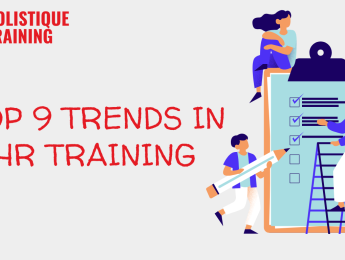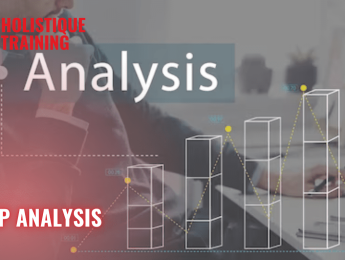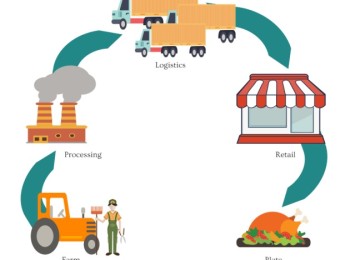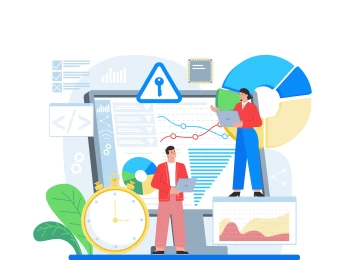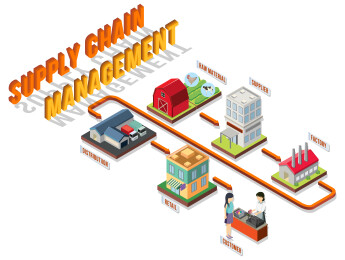- Table of Contents
- What Is an Accounts Assistant?
- Required Accounting Assistant Education
- 12 Best Accounting Assistant Certifications
- Essential Skills and Personality Traits for a Successful Accounts Assistant
- Challenges Faced by Accounts Assistants
- How to Develop Your Accounts Assistant Career
- The Impact of AI on the Future of Accounts Assistant Jobs
- Conclusion
Are you passionate about numbers, organisation, and financial management? Becoming a professional accounts assistant could be the perfect career path for you! An accounts assistant plays a crucial role in any organisation by supporting the accounting department and ensuring financial records are accurate and up-to-date. In this comprehensive guide, we'll walk you through the steps to becoming a proficient accounts assistant, from education and certifications to career development opportunities.
What Is an Accounts Assistant?
Before we delve into the steps to become an accounts assistant, let's first understand the role and responsibilities of this essential position. An accounts assistant is an entry-level accounting professional who assists in the day-to-day financial operations of an organisation. Their tasks may include processing invoices, handling payments, reconciling bank statements, managing expenses, and maintaining financial records.
While the role of an accounts assistant may vary depending on the size and nature of the company, attention to detail, strong organisational skills, and proficiency in financial software are crucial qualities for success in this field.
Required Accounting Assistant Education
To kickstart your journey towards becoming a professional accounts assistant, a solid educational foundation is essential. While a college degree is not always a mandatory requirement, it significantly enhances your employability and opportunities for career growth.
Pursue a Bachelor's Degree in Accounting or Finance
A bachelor's degree in accounting or finance is highly recommended for aspiring accounts assistants. The curriculum typically covers essential accounting principles, financial reporting, taxation, auditing, and business mathematics. Opting for an accredited programme will provide you with the knowledge and skills necessary to thrive in the competitive accounting industry.
Consider an Associate Degree or Diploma in Accounting
If a full-fledged bachelor's degree is not feasible for you, an associate degree or diploma in accounting can be a suitable alternative. These programmes offer a condensed version of accounting studies and are often more affordable and time-efficient.
Gain Practical Experience Through Internships
While pursuing your education, try to gain hands-on experience through internships or part-time positions in accounting firms or finance departments. Practical exposure will enhance your understanding of accounting processes and improve your chances of landing a job after completing your studies.
Table 1: Overview of education options
Education Level | Description |
Bachelor's Degree | Comprehensive education covering accounting principles, taxation, auditing, and business mathematics. |
Associate Degree | Condensed version of the curriculum, offering fundamental knowledge and practical skills in a shorter duration. |
Diploma | Focuses on essential accounting concepts, providing practical skills for immediate application in the workforce. |
12 Best Accounting Assistant Certifications
In addition to formal education, certifications are a great way to demonstrate your expertise and commitment to the accounting profession. Here are 12 valuable accounting assistant certifications to consider:
Certified Bookkeeper (CB) - Offered by the American Institute of Professional Bookkeepers (AIPB), this certification validates your bookkeeping skills and understanding of essential accounting concepts.
Certified Accounting Technician (CAT) - Provided by the Association of Chartered Certified Accountants (ACCA), this certification is ideal for those seeking a strong foundation in accounting principles.
QuickBooks Certified User - Offered by Intuit, this certification proves your proficiency in using QuickBooks software, a widely used accounting tool.
Certified Payroll Professional (CPP) - Granted by the American Payroll Association (APA), this certification focuses on payroll processes and regulations.
Certified Fraud Examiner (CFE) - Offered by the Association of Certified Fraud Examiners (ACFE), this certification is valuable for those interested in forensic accounting and fraud detection.
Certified Management Accountant (CMA) - Provided by the Institute of Management Accountants (IMA), this certification demonstrates expertise in management accounting and financial planning.
Chartered Global Management Accountant (CGMA) - Offered jointly by the AICPA and CIMA, this certification combines management accounting skills with business strategy.
Certified Public Accountant (CPA) - One of the most prestigious certifications for accountants, the CPA is provided by the American Institute of Certified Public Accountants (AICPA).
Certified Financial Analyst (CFA) - Offered by the CFA Institute, this certification is beneficial for those interested in investment analysis and portfolio management.
Certified Internal Auditor (CIA) - Granted by the Institute of Internal Auditors (IIA), this certification focuses on internal auditing and risk management.
Certified Government Financial Manager (CGFM) - Offered by the Association of Government Accountants (AGA), this certification is valuable for those pursuing careers in government accounting.
Certified Information Systems Auditor (CISA) - Provided by ISACA, this certification focuses on information systems auditing and cybersecurity.
Essential Skills and Personality Traits for a Successful Accounts Assistant
Becoming a successful accounts assistant requires more than just academic qualifications and technical knowledge. It demands a unique blend of skills and personality traits that enable individuals to navigate the complexities of financial management and build fruitful professional relationships. Here’s a comprehensive breakdown of the skills and traits that contribute to a thriving career as an accounts assistant:
Analytical Skills
A keen analytical mind is essential for an accounts assistant. The ability to interpret financial data, identify trends, and spot inconsistencies is crucial. Analytical skills enable accounts assistants to make informed decisions, solve financial puzzles, and provide valuable insights to their organisations.
Attention to Detail
The financial realm demands precision. Accounts assistants must meticulously review numbers, transactions, and records to ensure accuracy. A single overlooked detail can lead to significant financial discrepancies. Attention to detail is the cornerstone of error-free financial management.
Organisational Skills
Accounts assistants often handle a multitude of tasks simultaneously. Organisational skills are vital for managing data, meeting deadlines, and prioritising assignments effectively. A well-organised accounts assistant can juggle various responsibilities without compromising accuracy or efficiency.
Numerical Proficiency
A strong grasp of numbers and mathematics is fundamental. Proficiency in arithmetic and mathematical concepts enables accounts assistants to perform calculations, analyse financial data, and reconcile accounts accurately.
Technical Proficiency
Accounts assistants work with various financial software and tools. Proficiency in accounting software such as QuickBooks, Excel, or specialised ERP systems is a must. Being tech-savvy allows accounts assistants to automate processes, streamline tasks, and leverage software capabilities for data analysis and reporting.
Communication Skills
Effective communication is essential in the accounting profession. Accounts assistants must convey complex financial information clearly and concisely to colleagues, clients, and stakeholders. Strong verbal and written communication skills foster productive collaborations and ensure that financial insights are well-understood.
Ethical Judgement
Integrity and ethical judgement are non-negotiable traits for account assistants. Handling sensitive financial information requires trustworthiness and a commitment to ethical conduct. Upholding ethical standards builds credibility and fosters a positive reputation in the professional sphere.
Problem-Solving Abilities
Accounts assistants often encounter financial discrepancies and challenges. Strong problem-solving skills enable them to identify issues, investigate root causes, and implement effective solutions. Proactive problem solvers contribute to the financial stability of their organisations.
Time Management
Accounting tasks often come with tight deadlines. Effective time management skills empower accounts assistants to prioritise tasks, allocate resources efficiently, and meet deadlines without compromising accuracy. Time management ensures that work is completed promptly, even under pressure.
Teamwork and Interpersonal Skills
Accounts assistants collaborate with colleagues, clients, and other departments. Teamwork and interpersonal skills facilitate smooth interactions, foster positive work relationships, and enhance overall workplace harmony. The ability to work well in a team environment is invaluable.
Adaptability and Continuous Learning
The financial landscape and technology are constantly evolving. Being adaptable to change and embracing continuous learning are essential. Accounts assistants who stay updated with industry trends, regulations, and technological advancements remain valuable assets in the accounting profession.
Customer Focus
For accounts assistants working in client-facing roles, a customer-centric approach is vital. Understanding clients' needs, providing excellent service, and addressing concerns promptly build long-lasting relationships. A customer-focused accounts assistant ensures client satisfaction and loyalty.
Challenges Faced by Accounts Assistants
While the role of an accounts assistant is rewarding and essential, it is not without its challenges. Successfully managing these hurdles requires resilience, adaptability, and a continuous commitment to professional growth. Here, we delve into the significant challenges faced by accounts assistants and explore strategies to overcome them.
1. Managing High Volumes of Data
One of the fundamental challenges in the life of an accounts assistant is dealing with vast volumes of financial data. Processing invoices, reconciling transactions, and maintaining accurate records can be overwhelming, especially in large organisations. The sheer volume of data demands excellent organisational skills and attention to detail. Implementing efficient data management systems and embracing automation can significantly ease this burden, allowing accounts assistants to focus on tasks that require human judgement and expertise.
2. Meeting Strict Deadlines
Financial reporting and accounting tasks often come with tight deadlines, especially during tax seasons or fiscal year-end closings. Accounts assistants are under constant pressure to deliver accurate and timely results. To cope with this challenge, effective time management, prioritisation of tasks, and the ability to work well under pressure are essential. Utilising project management tools and adopting structured work methodologies can enhance efficiency and ensure that deadlines are met consistently.
3. Staying Compliant with Regulations
The financial landscape is governed by a plethora of regulations and standards. Navigating through tax laws, accounting principles, and industry-specific regulations can be complex and daunting. Accounts assistants need to stay updated with the ever-changing legal and regulatory environment. Continuous education, attending seminars, and networking with peers can provide valuable insights and support in remaining compliant with the latest financial regulations.
4. Dealing with Financial Discrepancies
Financial discrepancies are inevitable, but resolving them accurately and efficiently is vital. Detecting errors, investigating discrepancies, and reconciling accounts require a keen eye and a methodical approach. Accounts assistants often find themselves in the position of detectives, meticulously analysing financial records to identify inconsistencies. Developing problem-solving skills and attention to detail are invaluable in resolving discrepancies and ensuring the accuracy of financial data.
5. Balancing Technical and Soft Skills
Accounts assistants must possess a balance of technical proficiency and soft skills. While technical skills are necessary for tasks like data analysis and financial software operation, soft skills such as communication, teamwork, and client management are equally crucial. Balancing these skills can be challenging, as the profession demands versatility. Investing in communication and interpersonal skills training can bridge this gap, enabling accounts assistants to convey complex financial information clearly and work effectively with colleagues and clients.
6. Handling Client Expectations
For accounts assistants working in accounting firms, managing client expectations is a significant challenge. Clients often have high expectations regarding the accuracy and speed of financial services. Accounts assistants need to communicate effectively, manage client expectations, and handle feedback constructively. Developing strong client relationships based on trust and transparency is key to addressing this challenge and ensuring client satisfaction.
7. Maintaining Work-Life Balance
The demanding nature of accounting roles, especially during peak seasons, can lead to long working hours and potential burnout. Striking a balance between work commitments and personal life is essential for overall well-being. Establishing boundaries, taking regular breaks, and practising stress management techniques are vital in maintaining a healthy work-life balance. Employers can support accounts assistants by promoting a healthy work culture that values employee well-being.
In short, while being an accounts assistant comes with its share of challenges, these hurdles can be overcome with the right mindset, skills, and support systems in place. Embracing continuous learning, honing technical and soft skills, and cultivating resilience are the building blocks for overcoming challenges and thriving in the dynamic world of accounting. With dedication and a proactive approach, accounts assistants can transform challenges into opportunities for professional growth and excellence in their careers.
How to Develop Your Accounts Assistant Career
Once you've obtained the necessary education and certifications, the journey to becoming a successful accounts assistant doesn't end there. Continuous learning and skill development are vital to excel in this role and progress in your career. Here are some tips to develop your accounts assistant career:
Seek Mentorship and Professional Guidance
Mentorship can be a game-changer in your career journey. Seek out experienced accountants or senior colleagues within your organisation who are willing to guide and support you. A mentor can provide valuable insights, share their experiences, and offer practical advice on navigating the accounting industry. Regular meetings with your mentor can help you set goals, identify areas for improvement, and gain a broader perspective on the profession.
Pursue Continuing Education and Specialisations
To stand out in the competitive accounting field, consider pursuing further education and specialised certifications. Many universities and professional organisations offer postgraduate courses and workshops in areas such as taxation, auditing, financial analysis, and forensic accounting. By acquiring advanced qualifications, you enhance your expertise and become an invaluable asset to your employer.
Stay Updated with Industry Trends and Regulations
Accounting is a dynamic field, and regulations frequently change. Make it a habit to stay updated with the latest accounting industry trends, accounting standards, and tax laws. Subscribing to industry publications, attending seminars, and participating in webinars are excellent ways to keep abreast of the ever-evolving financial landscape.
Develop Soft Skills, Especially Communication
In addition to technical proficiency, possessing strong soft skills is vital for career advancement. As an accounts assistant, you'll often need to communicate financial information to various stakeholders, including colleagues, managers, and clients. Focus on improving your communication, presentation, and interpersonal skills to convey complex financial concepts in a clear and concise manner.
Leverage Technology and Accounting Software
In the digital age, proficiency in accounting software is a must-have skill for accounts assistants. Familiarise yourself with popular accounting software like QuickBooks, Xero, Sage, or SAP. Employing these tools efficiently streamlines your tasks, enhances accuracy, and frees up time for more strategic activities.
Pursue Professional Certifications
Building on the certifications mentioned earlier, consider earning additional credentials that align with your career goals. For example, if you aspire to specialise in financial analysis, the Certified Financial Analyst (CFA) certification could be a suitable choice. Tailoring your certifications to your career aspirations demonstrates commitment and expertise in your chosen field.
Network within the Accounting Community
Networking is a powerful tool for career growth. Attend industry events, workshops, and seminars to connect with fellow accounting professionals and potential employers. Engaging in online accounting forums and social media groups can also expand your network and provide opportunities for collaboration and mentorship.
Volunteer for Challenging Projects
Proactively seek out opportunities to take on new challenges and responsibilities at work. Volunteer to assist in special accounting projects or cross-functional initiatives. By stepping outside your comfort zone, you demonstrate your versatility and willingness to contribute to the organisation's success.
Consider Specialising in Niche Industries
Depending on your interests and the industries you are passionate about, consider specialising in niche areas of accounting. Industries such as healthcare, real estate, non-profits, or the government have unique accounting requirements. Becoming an expert in a specific sector can set you apart from generalist accountants and open doors to specialised roles.
The Impact of AI on the Future of Accounts Assistant Jobs
In recent years, the rise of artificial intelligence (AI) and automation technologies has sparked discussions about their potential to replace various jobs, including those in the field of accounting. In fact, according to Finances Online, research conducted by Oxford University forecasted that over 40% of jobs would be automated by the year 2033. While these advancements have undoubtedly transformed certain aspects of the industry, the role of accounts assistants remains resilient, with both challenges and opportunities emerging as a result of AI integration.
Automation and Efficiency
AI-powered tools and software have significantly automated repetitive and time-consuming tasks in accounting. Processes such as data entry, invoice processing, and basic bookkeeping can now be handled swiftly and accurately by AI systems. This automation has not only increased efficiency but has also allowed accounts assistants to focus on more strategic and complex aspects of financial management.
Data Analysis and Decision-Making
AI excels at processing vast amounts of data and identifying patterns that might be challenging for humans to discern. In the context of accounting, AI technologies enable in-depth data analysis, offering insights into financial trends, expenditure patterns, and revenue streams. Accounts assistants can leverage these insights to make informed decisions, providing valuable financial guidance to their organisations.
Enhanced Accuracy and Reduced Errors
One of the significant advantages of AI in accounting is its ability to ensure accuracy. Machines do not suffer from fatigue or distractions, leading to reduced errors in financial calculations and reporting. Accounts assistants working alongside AI systems can guarantee the precision of financial records, thereby enhancing the reliability of the information provided to stakeholders.
Human Touch and Complex Problem-Solving
Despite the advancements in AI, the human touch remains invaluable in accounting. Accounts assistants possess critical thinking skills and a deep understanding of the contextual nuances of financial data. They can interpret complex financial situations, consider various factors, and apply judgement to decision-making processes. Additionally, the interpersonal skills of accounts assistants are irreplaceable when it comes to communicating financial information to clients, colleagues, and management.
Adaptability and Learning
The integration of AI necessitates a continuous process of learning and adaptation for accounts assistants. Staying updated with the latest AI technologies and understanding how to effectively utilise these tools becomes crucial. Accounts assistants who embrace AI and acquire the skills to work alongside these technologies find themselves in a more advantageous position, as they can harness AI's potential to enhance their productivity and capabilities.
New Opportunities and Specialisations
AI's impact on the accounting industry has also given rise to new opportunities and specialisations. Roles such as AI system analysts, automation consultants, and AI ethics advisors have emerged, creating diverse career paths for professionals with expertise in both accounting and AI technologies. Accounts assistants can explore these specialised areas, expanding their skill set and contributing to the responsible implementation of AI in accounting practices.
In summary, while AI has undeniably influenced the landscape of accounting, the role of accounts assistants remains indispensable. By embracing AI as a tool to enhance efficiency, accuracy, and decision-making, accounts assistants can evolve alongside technology. The human qualities of critical thinking, judgement, and communication, coupled with the efficiency of AI, create a synergy that propels the accounting profession into a future where human expertise and artificial intelligence coexist harmoniously, enriching the field and providing new avenues for growth and innovation.
Conclusion
Becoming a professional accounts assistant is a rewarding journey that requires a combination of education, certifications, and ongoing development. With dedication, continuous learning, and a passion for numbers, you can establish yourself as a proficient accounts assistant and embark on a successful career in the accounting industry. Remember, the key to success lies in staying adaptable, continually improving your skills, and seizing opportunities for growth. So, take the first step today and unlock the doors to a promising career as an accounts assistant!
If you're ready to take the first step towards becoming a professional accounts assistant, make sure to explore our course, ‘Becoming a Professional Accounts Assistant’ that covers everything you need to know about excelling in this rewarding field. Enrol now and let us guide you towards a successful career in accounting!








